Homer Durand
Dimensionality Reduction for Remote Sensing Data Analysis: A Systematic Review of Methods and Applications
Oct 21, 2025Abstract:Earth observation involves collecting, analyzing, and processing an ever-growing mass of data. Automatically harvesting information is crucial for addressing significant societal, economic, and environmental challenges, ranging from environmental monitoring to urban planning and disaster management. However, the high dimensionality of these data poses challenges in terms of sparsity, inefficiency, and the curse of dimensionality, which limits the effectiveness of machine learning models. Dimensionality reduction (DR) techniques, specifically feature extraction, address these challenges by preserving essential data properties while reducing complexity and enhancing tasks such as data compression, cleaning, fusion, visualization, anomaly detection, and prediction. This review provides a handbook for leveraging DR across the RS data value chain and identifies opportunities for under-explored DR algorithms and their application in future research.
Learning Causal Response Representations through Direct Effect Analysis
Mar 06, 2025

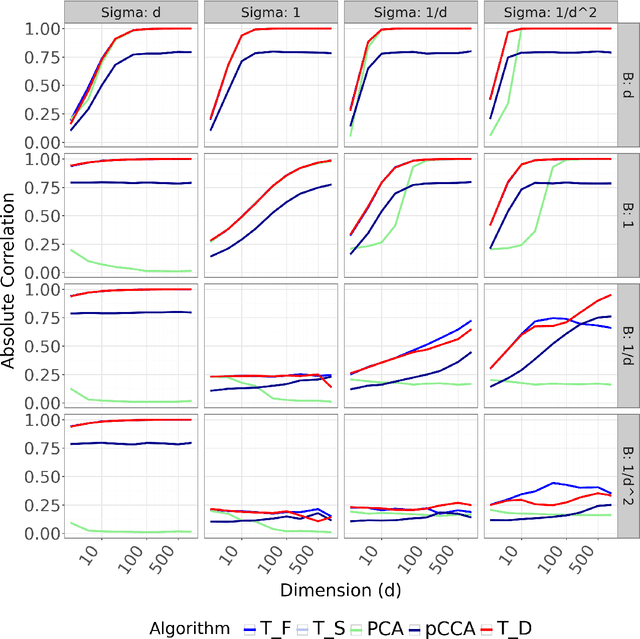

Abstract:We propose a novel approach for learning causal response representations. Our method aims to extract directions in which a multidimensional outcome is most directly caused by a treatment variable. By bridging conditional independence testing with causal representation learning, we formulate an optimisation problem that maximises the evidence against conditional independence between the treatment and outcome, given a conditioning set. This formulation employs flexible regression models tailored to specific applications, creating a versatile framework. The problem is addressed through a generalised eigenvalue decomposition. We show that, under mild assumptions, the distribution of the largest eigenvalue can be bounded by a known $F$-distribution, enabling testable conditional independence. We also provide theoretical guarantees for the optimality of the learned representation in terms of signal-to-noise ratio and Fisher information maximisation. Finally, we demonstrate the empirical effectiveness of our approach in simulation and real-world experiments. Our results underscore the utility of this framework in uncovering direct causal effects within complex, multivariate settings.
Recovering Latent Confounders from High-dimensional Proxy Variables
Mar 21, 2024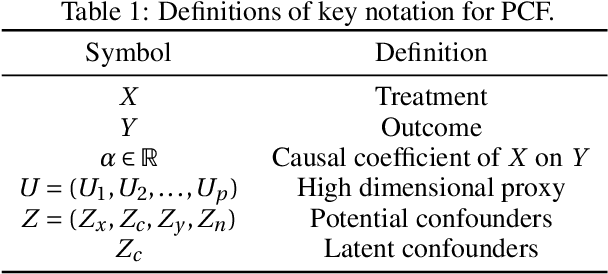
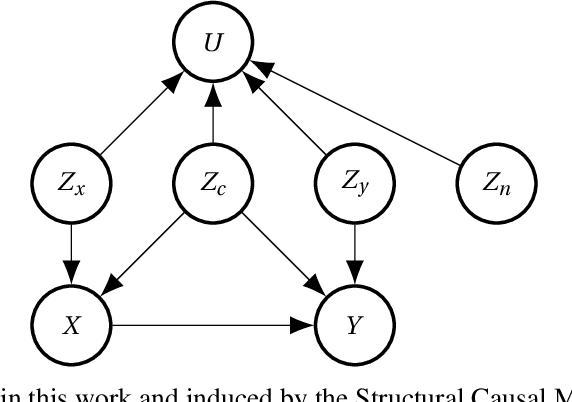
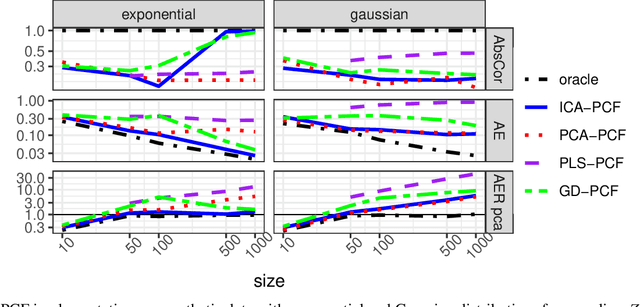

Abstract:Detecting latent confounders from proxy variables is an essential problem in causal effect estimation. Previous approaches are limited to low-dimensional proxies, sorted proxies, and binary treatments. We remove these assumptions and present a novel Proxy Confounder Factorization (PCF) framework for continuous treatment effect estimation when latent confounders manifest through high-dimensional, mixed proxy variables. For specific sample sizes, our two-step PCF implementation, using Independent Component Analysis (ICA-PCF), and the end-to-end implementation, using Gradient Descent (GD-PCF), achieve high correlation with the latent confounder and low absolute error in causal effect estimation with synthetic datasets in the high sample size regime. Even when faced with climate data, ICA-PCF recovers four components that explain $75.9\%$ of the variance in the North Atlantic Oscillation, a known confounder of precipitation patterns in Europe. Code for our PCF implementations and experiments can be found here: https://github.com/IPL-UV/confound_it. The proposed methodology constitutes a stepping stone towards discovering latent confounders and can be applied to many problems in disciplines dealing with high-dimensional observed proxies, e.g., spatiotemporal fields.
Improving generalisation via anchor multivariate analysis
Mar 11, 2024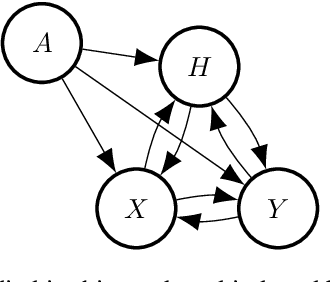



Abstract:We introduce a causal regularisation extension to anchor regression (AR) for improved out-of-distribution (OOD) generalisation. We present anchor-compatible losses, aligning with the anchor framework to ensure robustness against distribution shifts. Various multivariate analysis (MVA) algorithms, such as (Orthonormalized) PLS, RRR, and MLR, fall within the anchor framework. We observe that simple regularisation enhances robustness in OOD settings. Estimators for selected algorithms are provided, showcasing consistency and efficacy in synthetic and real-world climate science problems. The empirical validation highlights the versatility of anchor regularisation, emphasizing its compatibility with MVA approaches and its role in enhancing replicability while guarding against distribution shifts. The extended AR framework advances causal inference methodologies, addressing the need for reliable OOD generalisation.
Semi-automatic tuning of coupled climate models with multiple intrinsic timescales: lessons learned from the Lorenz96 model
Aug 16, 2022
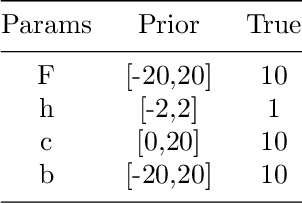
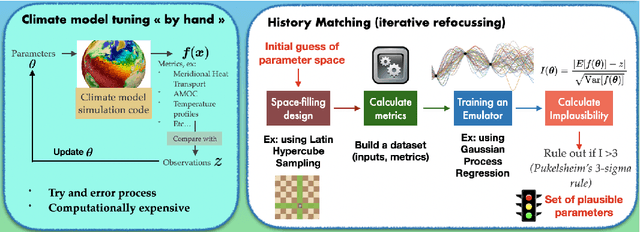
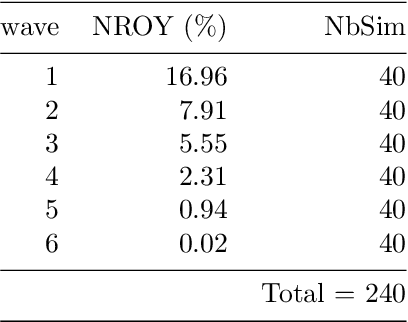
Abstract:The objective of this study is to evaluate the potential for History Matching (HM) to tune a climate system with multi-scale dynamics. By considering a toy climate model, namely, the two-scale Lorenz96 model and producing experiments in perfect-model setting, we explore in detail how several built-in choices need to be carefully tested. We also demonstrate the importance of introducing physical expertise in the range of parameters, a priori to running HM. Finally we revisit a classical procedure in climate model tuning, that consists of tuning the slow and fast components separately. By doing so in the Lorenz96 model, we illustrate the non-uniqueness of plausible parameters and highlight the specificity of metrics emerging from the coupling. This paper contributes also to bridging the communities of uncertainty quantification, machine learning and climate modeling, by making connections between the terms used by each community for the same concept and presenting promising collaboration avenues that would benefit climate modeling research.
 Add to Chrome
Add to Chrome Add to Firefox
Add to Firefox Add to Edge
Add to Edge